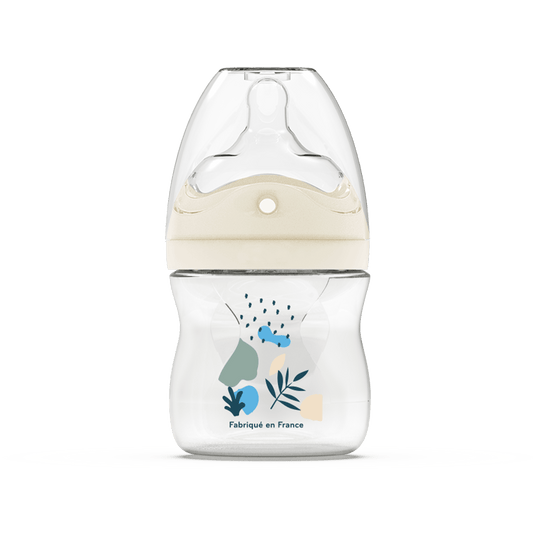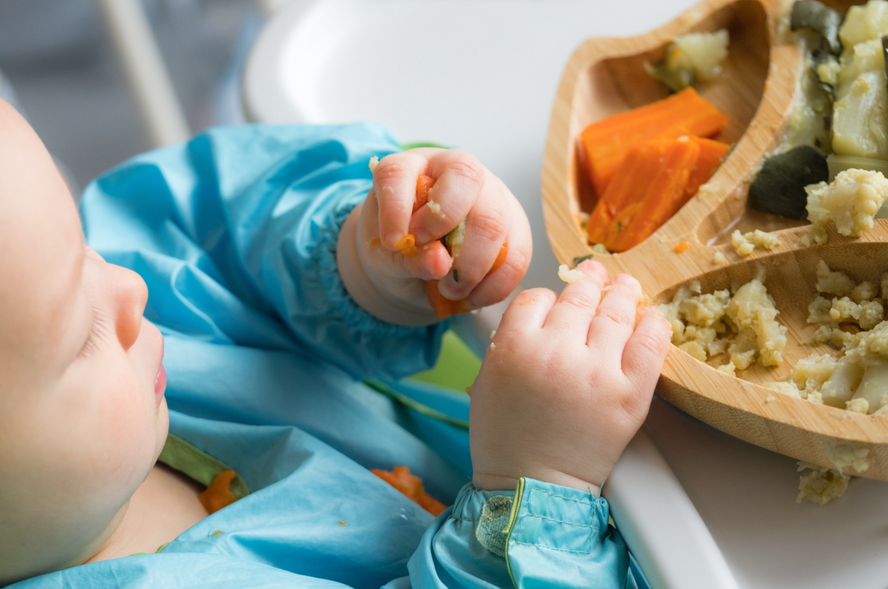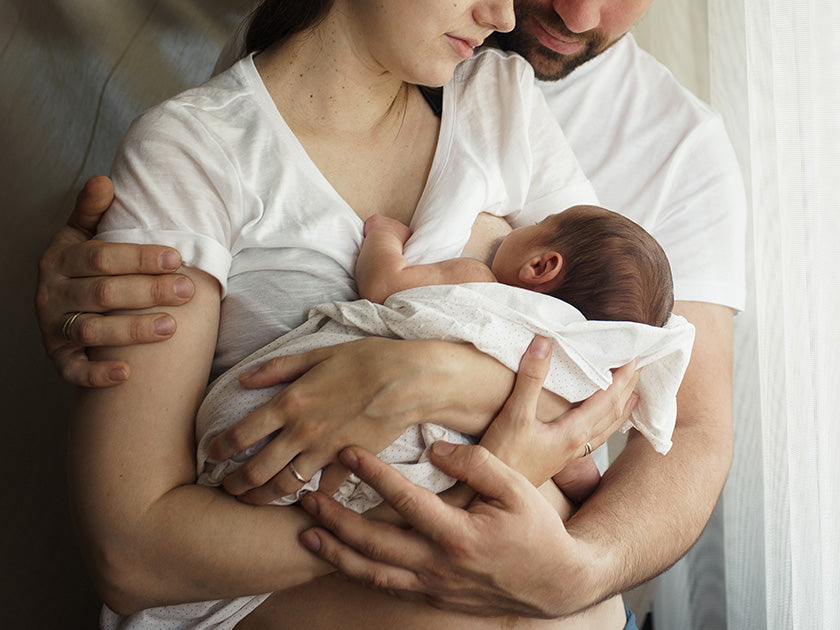Is your baby eating less or refusing to eat? Don't panic! We'll explain why and share our tips.
My baby refuses to eat: what should I do?
Milk, homemade puree, or industrial baby food, your baby wants nothing to do with it and refuses to eat ! This situation is destabilizing for new parents who don't understand why their baby, who used to eat so well, rejects everything offered. Rest assured, most children go through this phase and everything usually ends up being okay. At Biostime, we help you understand why your baby is eating less or refusing to eat and we give you some advice.
Why is your baby eating less or refusing to eat?
First of all, remember that most children are reluctant to eat at one time or another. If your baby refuses to drink milk or try a new food during solid food , don't panic! There are several reasons why your baby may refuse to eat:
-
Weaning from breastfeeding or switching to mixed feeding when the mother has made the decision to wean or switch to mixed feeding . The transition from breast to infant formula may not be well received by your baby and may lead to bottle refusal 1 ;
Important notice: Breast milk is the ideal and natural food for every infant. - The beginning of food diversification : if you have just started food diversification, it is possible that your baby will initially refuse to eat foods that he is not familiar with. All this is very new for him 2 ;
- Introducing chunks : Switching from blended foods to foods in small pieces can be confusing for your toddler. This new texture can sometimes be unsettling 3 ;
- He is less hungry at the moment : a baby will never let himself starve, he just listens to his feelings and eats when he feels the need 3,4 ;
- There is a change in their environment : if your baby is starting nursery, for example, this period of change may lead to a decrease in appetite. This is a natural reaction to a major change 3 ;
- Your baby is teething or sick : In the case of teething or a passing cold, it is not uncommon for babies' appetite to decrease for a few days 5 ;
- He is subject to food neophobia : this somewhat barbaric term means, for example, that he refuses to taste certain foods out of distrust or fear of the unknown. This phase generally appears around the age of 2 and disappears spontaneously around the age of 6 or 7.
- As long as your baby's weight and growth are progressing normally, there's no need to worry about their poor appetite. And if in doubt, ask your pediatrician for advice. 7
“Important notice: Breast milk is the ideal and natural food for every infant: it is best suited to their specific needs. When using infant formula, when the mother cannot or does not wish to breastfeed, it is important to scrupulously follow the instructions for preparation and use and to follow the advice of the medical profession.”
What should I do if my baby eats less or refuses to eat?
The first thing to remember is that you should never force a child to eat . The more you insist, the less he will eat and it may even create a blockage. If your baby refuses a food, offer it again a few days later, perhaps in a different form that he might like better. 6
Other tips can be implemented:
- Create a calm atmosphere at the table : turn off the television, put away the games, and teach him to focus on the contents of his plate. Try to make mealtimes a friendly and enjoyable experience and don't focus on his lack of appetite. In other words, take the drama out of it and learn to let go !
- Take care with the presentation of your plate to make the meal more fun 7 ;
- Give your baby some guidelines , even if he is still young, by establishing a ritual: for example, playtime, bath time and then mealtime 3 ;
- Give him time to transition : if he is starting to diversify his diet or introduce pieces, your baby may need time to decide to diversify his diet. Be patient 7 . And if the refusal persists, you will obviously need to consult a health professional who can help you find the cause and solutions.
To your stories!
Is your baby refusing the food you're offering? How did you react? What are your tips for getting your baby to eat? Come tell us your story and share your experience at contact@biostime.fr or by private message on Instagram @biostimefr . It's the best way to help parents who are in the same situation as you!
Sources:
- Mpedia [Online] Difficulties and practical solutions for weaning your baby [Accessed 04/08/2023] Available: https://www.mpedia.fr/art-difficultes-sevrage/
- Mpedia. [Online] He does not eat foods he does not know, or selects foods: neophobia [Consulted on 04/08/2023] Available: https://www.mpedia.fr/art-neophobie/
- Junier, H [Online] He eats so little... Early childhood professionals; The nursery school [Published on: 2017, October 31. Consulted on 08/04/2023] Available: https://lesprosdelapetiteenfance.fr/bebes-enfants/psycho-pedagogie/fiches-pratiques/il-mange-si-peu
- Nutrition Passport [Online] How to recognize hunger and satiety signals in children? [Accessed 04/08/2023] Available: https://passeportnutrition.org/maternite/introduction-des-premiers-aliments-du-bebe/reconnaitre-signaux-de-faim-de-satiete-chez-lenfant/
- Born and Growing [Online] Teething [Accessed 04/08/2023] Available: https://naitreetgrandir.com/fr/sante/naitre-grandir-sante-bebe-dent-poussee-dentaire/
- Mpedia. [Online] He does not eat foods he does not know, or selects foods: neophobia [Consulted on 04/08/2023] Available: https://www.mpedia.fr/art-neophobie/
- The House of Maternelles. [Online] My child doesn't want to eat anything! [Accessed 04/08/2023] Available: https://www.lamaisondesmaternelles.fr/article/mon-enfant-ne-veut-rien-manger












